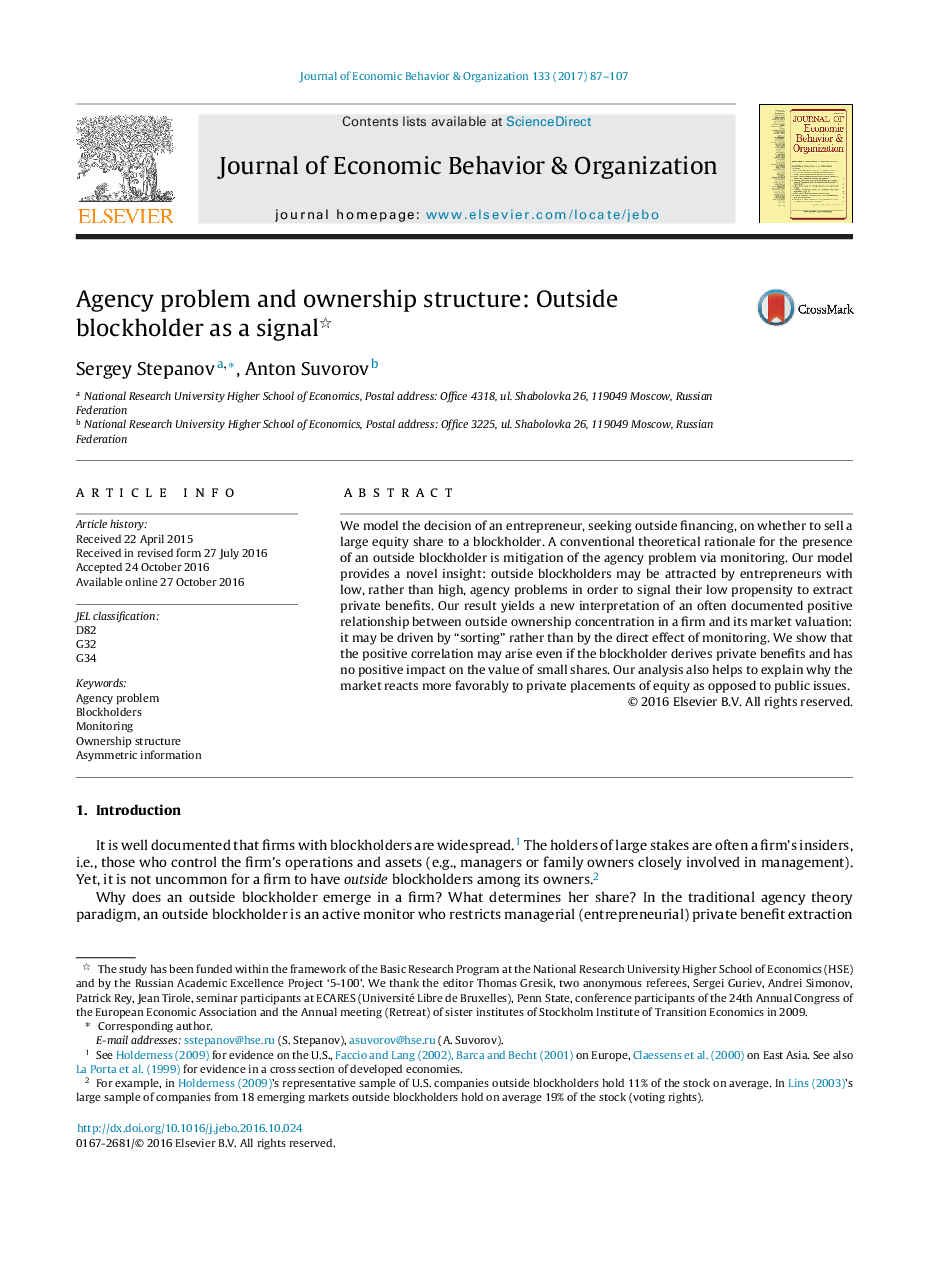| Article ID | Journal | Published Year | Pages | File Type |
|---|---|---|---|---|
| 5034602 | Journal of Economic Behavior & Organization | 2017 | 21 Pages |
â¢An entrepreneur is seeking outside financing.â¢He has private information about his propensity to extract private benefits.â¢A “good” entrepreneur signals his type by selling a large equity share to a blockholder.â¢Hence, a lower agency problem results in higher outside ownership concentration.â¢The model provides a new interpretation to empirical regularities.
We model the decision of an entrepreneur, seeking outside financing, on whether to sell a large equity share to a blockholder. A conventional theoretical rationale for the presence of an outside blockholder is mitigation of the agency problem via monitoring. Our model provides a novel insight: outside blockholders may be attracted by entrepreneurs with low, rather than high, agency problems in order to signal their low propensity to extract private benefits. Our result yields a new interpretation of an often documented positive relationship between outside ownership concentration in a firm and its market valuation: it may be driven by “sorting” rather than by the direct effect of monitoring. We show that the positive correlation may arise even if the blockholder derives private benefits and has no positive impact on the value of small shares. Our analysis also helps to explain why the market reacts more favorably to private placements of equity as opposed to public issues.
